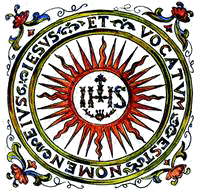Luckily for me, the only other Ayn Rand selection in our household was Atlas Shrugged. What can I say? There is nothing like a long, boring tirade from John Galt to cure a soul of any Objectivist leanings.
In pulling the books off the shelves, I was amused to find four copies of Edith Hamilton's Mythology, two of C.S. Lewis' The Screwtape Letters, three of Louis Nizer's My Life in Court, a very fine edition of Quiller-Couch's Oxford Book of English Verse (and the 1970s Helen Gardner update) as well as two copies of All Quiet on the Western Front. Now we see where all of Mother and Daddy's money got to.
Anyway, among my many finds was one of those classics which well-bred people should always have handy but which one is never really obliged to read - Alexis de Toqueville's Democracy in America. An abridged version, I have to admit. As I was paging through those unread but no doubt very erudite pages, I noticed a few paragraphs that seemed pretty interesting:
... America is the most democratic country in the world, and it is at the same time (according to reports worthy of belief) the country in which the Roman Catholic religion makes most progress. At first sight, this is surprising...This seems to make reference to what would later happen at the Second Vatican Council, when the Church noted that the time for monarchies had passed and the democratic form of government was best for humanity.
...At the present time, more than in any preceding age, Roman Catholics are seen to lapse into infidelity, and Protestants to be converted to Roman Catholicism. If the Roman Catholic faith be considered within the pale of the Church, it would seem to be losing ground; without that pale, to be gaining it. Nor is this difficult of explanation. The men of our days are naturally little disposed to believe; but, as soon as they have any religion, they immediately find in themselves a latent instinct which urges them unconsciously towards Catholicism. Many of the doctrines and practices of the Romish Church astonish them; but they feel a secret admiration for its discipline, and its great unity attracts them. If Catholicism could at length withdraw itself from the political animosities to which it has given rise, I have hardly any doubt but that the spirit of the age which appears to be so opposed to it would become so favorable as to admit of its great and sudden advancement.
De Toqueville goes on to make this rather prophetic statement:
...I am inclined to believe that ... our posterity will tend more and more to a division into only two parts - some relinquishing Christianity entirely, and others returning to the Church of Rome.This is eerily true today. Mainline Christianity is on the wane, with its adherents for the most part being lost to either secularism or more apostolic faiths - although, so far there seem to be three divisions rather than two: Those who relinquish Christianity, those who return to Rome, and those who embrace the evangelical movement. Of course one imagines that eventually the three will devolve into the two De Toqueville posits.
He also makes this comment:
Although the Christians of America are divided into a multitude of sects, they all look upon their religion in the same light. This applies to Roman Catholicism as well as to the other forms of belief. There are no Romish priests who show less taste for the minute individual observances, for extraordinary or peculiar means of salvation, or who cling more to the spirit, and less to the letter, of the law, than the Roman Catholic priests of the United States. Nowhere is that doctrine of the Church which prohibits the worship reserved to God alone from being offered to the saints, more clearly inculcated or more generally followed. Yet the Roman Catholics of America are very submissive and very sincere...Ehhhhh ... You see, I agree with the first part of his analysis, but somehow I fear that some parts of the Church in America have "grown" out of the "submissive and very sincere" label. Alas, would that it were not so.




















No comments:
Post a Comment